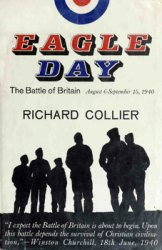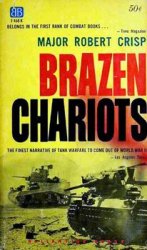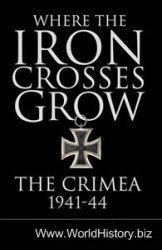In his letter to Sholem Aleichem that served as the introduction to the literary almanac Di yudishe folksbibliotek, Dr. Isaac Kaminer, a Hebrew writer and poet, compared Kiev to the Jewish communities established by the Niko-laevan soldiers in the Russian interior—a collection of individuals from many places who found themselves thrown together and thus started a community:
We came here one by one, from Lithuania, from Reisen, Vohlyn, Poland; each was a stranger to his fellow, everyone was his own individual (adam bi-fenei atsmo): poor, rich, hungry, caught up in worries about the future. [But before you knew it, we had] a minyan [prayer quorum], beys medresh [study hall], biker khoylim [visiting the sick society], khevras mishnayos [Mishna study brotherhood], hakhnasas orkhim [society to support the community hostel], and so on. The strong and lively spirit of Judaism was growing.207
Kaminer's was an outlook colored by the optimism of his time, the 1880s. Then, Jews could move to a new city and, at least in his eyes, not be substantially changed by their new environment. True, Jews differed in their regional customs and accents, but their fundamental religious and communal needs and aims were the same. By the second decade of the twentieth century, Jews streamed en masse to events like the folk music concert at the Concordia Club and the Conference on Hebrew Culture and Language, hungry for Jewish culture that was both "old" and "new" at the same time. Students and middle-class professionals, who had grown up and been educated in the bosom of Russian culture and were now increasingly shut out of many (though not all) areas of imperial life, turned back to Jewish culture for a sense of meaning and belonging. Many "ordinary" working-class Jews felt a natural connection to Jewish nationalist culture because of its mobilization of symbols from the world of Jewish religious observance, most notably the Hebrew language and the Land of Israel.
Indeed, as we have seen, Kiev not only became a city with a large Jewish population but was seen by some as a Jewish city in the same way that the very character of Warsaw and Odessa was permeated with Jewishness. It may well be that the very impression that Russian Kiev had become "too Jewish" helped to stimulate or intensify the pogroms when they did occur; a nationalist publication explicitly linked the 1905 pogrom with the purported Jewish attempt to "take possession of Kiev and its ancient sacred places," which was the key to conquering all of Russia.208 Gennady Estraikh writes that Jews were "more marginal" in Kiev than they would have been in the shtetlekh of the Pale where they often constituted the majority of residents, but marginality is a difficult concept to pin down.209 It is likely that a Jew, especially a young one, would feel much more a part of the mainstream of Russian and European—and even Jewish—life in a big city, the center of culture, politics, and finance.
As Jews became more Russian and more integrated into the city's institutions, the counter-reaction on the part of the government was to restrict Jews from those very institutions. The first and best example of this phenomenon was the numerus clausus instituted by the Ministry of Public Enlightenment under Alexander III, but in later years it extended to many other areas of society. And the popularity of Jewish nationalism was fueled not only by rising hostility to Jews but also by widespread acculturation among Jews and the sense that Jews were losing their uniqueness and an authentic culture.
By the time the tsarist regime had reversed its stated goal of merging the Jewish population into Russian society in favor of a segregation that would "protect" the narod from the dangers of Jewry, a significant proportion of Russian Jews, especially those educated in Russian gymnasia and universities, were now fully Russian in their cultural affinities and sensibilities: Russian, that is, in the all-imperial sense, rossiiskii, not the ethnic russkii.210 If they were to "return" to Jewish cultural production, as some of them did, it would be in an unmistakably imperial, Russian mode.
In a complex dance with Russian state and society, as Jews became more and more Russian and at home in Russian culture, they yearned for an authentic way of being Jewish that they felt was disappearing. Thus, antisemitism and pogroms were not the only cause for the turn to Jewish nationalism. Even nationalism and modern Jewish culture—in Yiddish and Hebrew as well as Russian—were expressed in particularly "Russian" ways. Wealthy, acculturated Jews wanted poor Jews to study traditional heder curricula, while the middle class wanted to recreate some kind of "authentic," "living" Judaism they felt they had lost.
A history of Kiev Jewry published in 1902 by communal activist Israel Darewski provides insight into local Jewish identity. Darewski argued that the Khazars (a Turkic people who had converted to Judaism) had settled Kiev in the eighth century, before the city was settled by Russians (or the Rus’) in the ninth century.211 Darewski also argued that the Khazars had called the place Zion, perhaps because of the connection between the hills of Kiev and the mountain called Zion. Later, the Russians corrupted "Zion" into "Kiev" in a complex linguistic transition that Darewski described in detail.
Darewski audaciously turned received history on its head: Kiev was not the "Jerusalem of Russia" and the mother of Russian cities, but rather a second Jewish Jerusalem, having been originally named after the holy city itself. Indeed, Jews had been there even before Russians and, as Darewski went on to show, had maintained a presence for much of subsequent history. Darewski's stance is even more daring when we call to mind the continuing charges on the part of Judeophobes that Jews were bent on taking over Kiev and using it as a base from which to enslave all of Russia. Keeping in mind that the book was written in Hebrew, we may interpret his project in a number of ways. Perhaps it was his way of expressing that Kiev's Jews felt at home in the city, and rightfully so, since they had been there for a millennium. The message to his home community was one of reassurance, providing them with a local Jewish myth that would help to bind them to the place despite charges (written into law) that Jews did not belong there. It may also have been an attempt to create a shared sense of community among Jews who were divided among themselves, sometimes seemingly irrevocably. The book might also be seen as a historical foundation for a confident Jewish existence on Russian soil; that even the city reputed to be most hostile to Jews was in reality a Jewish city. While some Kiev Jews who were secure in their place in the city and in imperial society as a whole would probably have chosen to read Darewski's interpretation as confirming their own selfconfidence, most would likely have seen it as a call for Jews to fight for their right to call Russia their rightful home, and for equal rights as equal citizens. a decade after the book's publication, the chances that Jews would be optimistic enough to subscribe to either position were remote indeed.




 World History
World History









